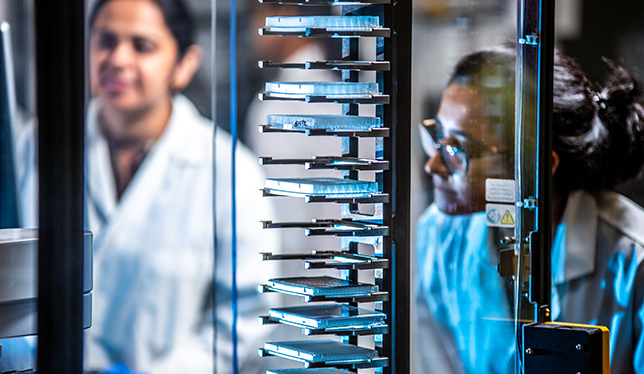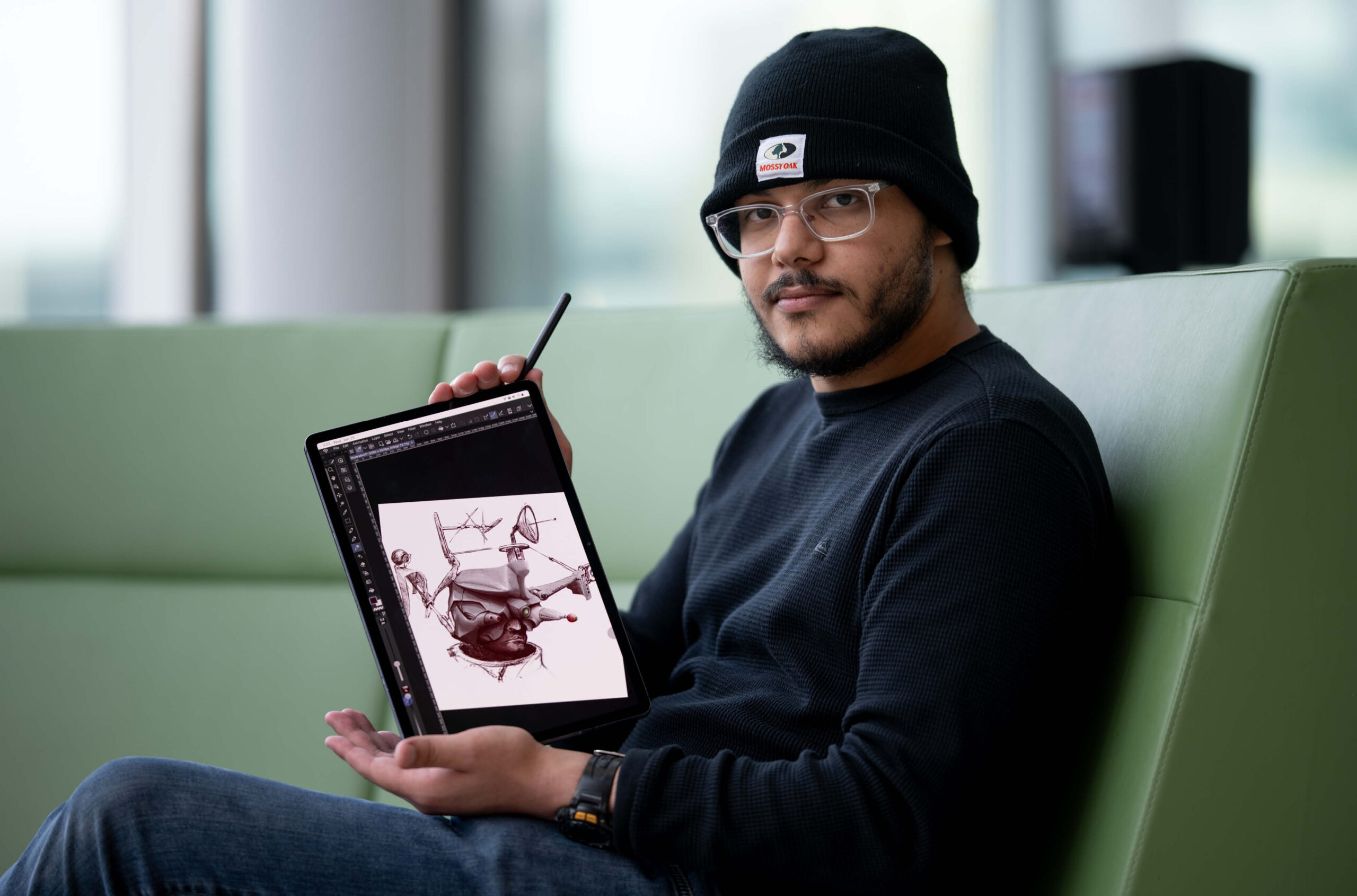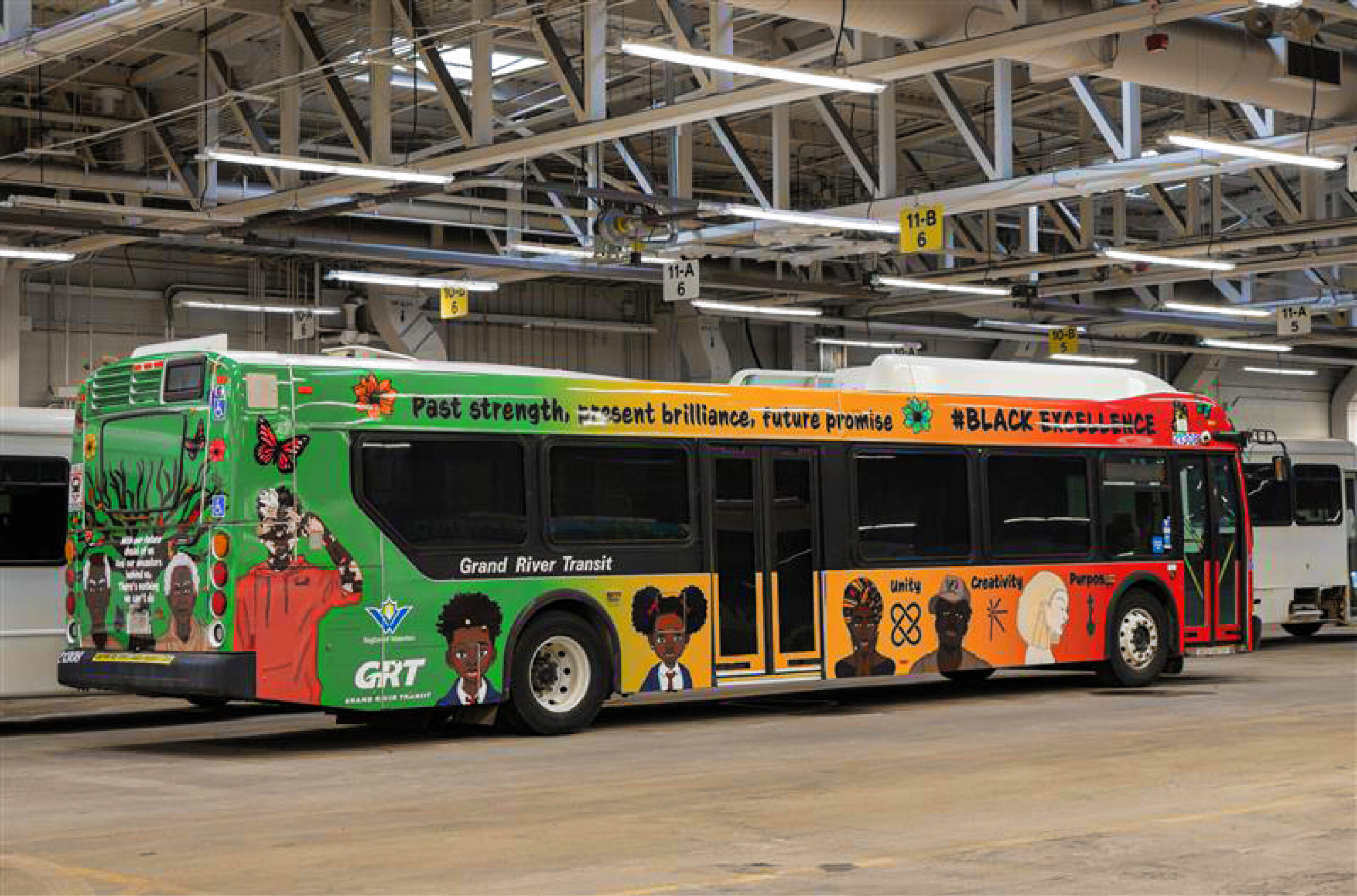The Genome Foundry ushers Canada into the era of automated genetic engineering
The Concordia research facility is the first of its kind in Canada, and one of about 15 labs in the world to specialize in the automated assembly of DNA parts.

Traditionally, synthetic biologists toiled at the bench, moving small amounts of DNA from one test tube to another, using trial and error to tinker with a few genes at a time. Figuring out the function of a gene, or what DNA changes could re-engineer a gene to do something new would take years. But at Concordia University’s Genome Foundry, robots do a day’s work in just minutes.
The development opens the door to understanding and building entire genomes, comprised of tens of thousands of genes, faster than ever before. “That’s not doable by hand and that’s not doable by the simple human mind. You need more computational power and you need more automation,” says Vincent Martin, professor of biology and co-director of Concordia’s Centre for Applied Synthetic Biology. Testing hundreds of genes in parallel, the foundry scales capacity, allowing researchers to get better at predicting the functional effects of DNA changes, and to build much more complex synthetic biological systems.
“Questions and problems that you couldn’t address even five, six years ago, all of a sudden are totally addressable,” says Dr. Martin. One such question: could we someday build a synthetic organism that remediates heavy waste from the oil sands?
The foundry is the first in Canada and one of about 15 research facilities in the world that specializes in automating the assembly of DNA parts. It opened last year with $2.4 million from the Canada Foundation for Innovation. Since then, researchers have been developing a standardized design-build-test-learn workflow for the foundry’s robotics and software. They have also been figuring out which organisms and applications the facility will prioritize.
Take a peek inside the Foundry:
[masterslider id=”30″]
“An overall workflow requires all these robots to work in concert like an orchestra,” says Nicholas Gold, one of the foundry’s platform coordinators. Computer scientists create design software for testing and assembling DNA pieces into biological pathways akin to microscopic assembly lines. Thousands of cell lines are tested and the data analyzed to see what they do and determine how to rewrite the DNA code to turn the organisms into miniature molecular factories.
Using biological systems to produce everyday materials is cheaper and more sustainable than many conventional methods. For example, one of the lab’s keystone projects uses yeast to produce nylon from sugar. “Now you’re getting rid of a byproduct of a petroleum-based product [nylon] and you’re using a biological source to do that,” says Smita Amarnath, a foundry platform coordinator.
Other applications range from developing new drugs and vaccines to developing environmental technologies and producing food, chemicals, and other materials.
Though the foundry is focused on academic projects, reducing the cost and accelerating the speed of engineering biology through industrialization puts Concordia at the centre of the move towards a Canadian bio-economy. “Industry, in general, is moving in that direction,” says Dr. Martin. “As a university, which is a training institution at its base, we have to start thinking about training the way industry works.”
Featured Jobs
- Canadian Politics - Assistant ProfessorUniversity of Toronto
- Canada Excellence Research Chair in Forest Biodiversity Conservation (Full Professor)University of New Brunswick
- Psychology - Assistant Professor (Clinical Psychology)Queen's University
- Canada Excellence Research Chair in Energy TransitionsUniversité du Québec à Trois-Rivières (UQTR)
- Education - Assistant Professor (Distance Education)University of Toronto














Post a comment
University Affairs moderates all comments according to the following guidelines. If approved, comments generally appear within one business day. We may republish particularly insightful remarks in our print edition or elsewhere.